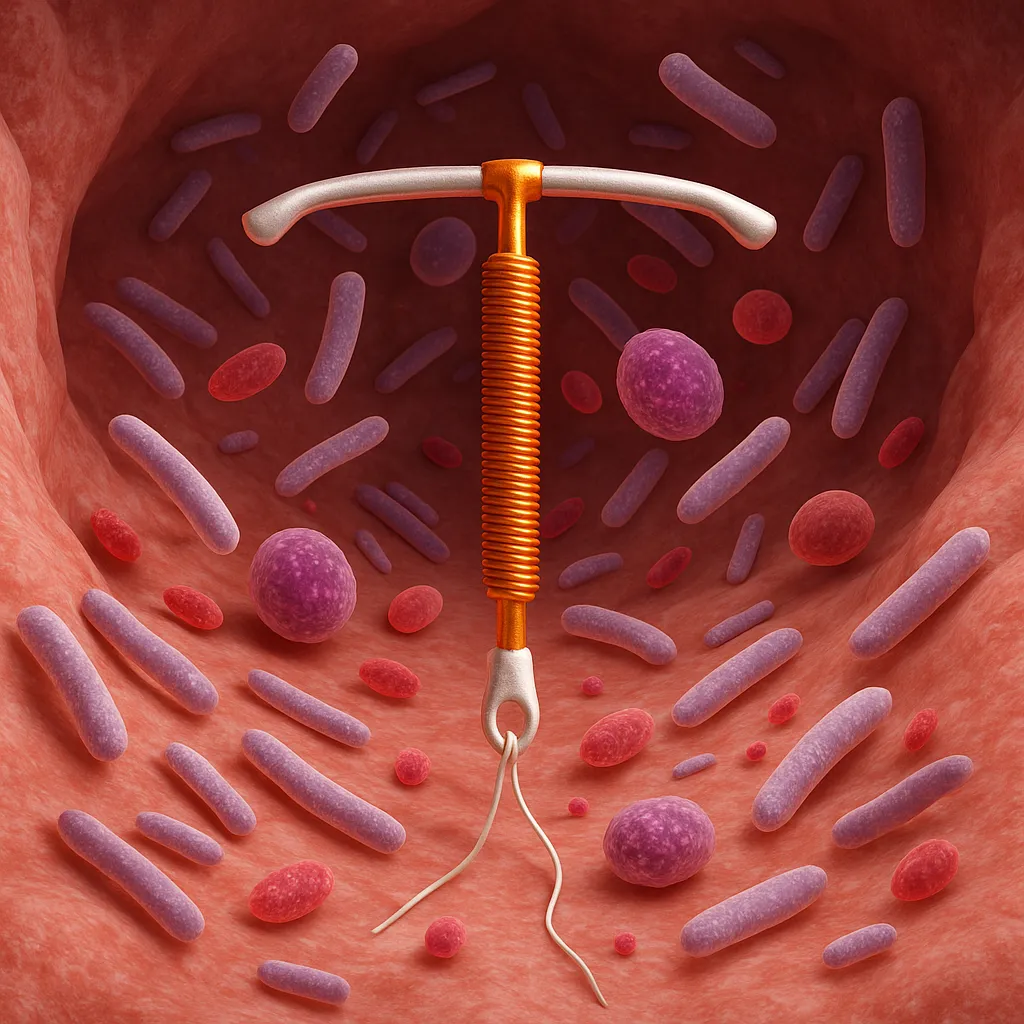NEW ARTICLE SUMMARY:
Copper intrauterine device increases vaginal concentrations of inflammatory anaerobes and depletes lactobacilli compared to hormonal options in a randomized trial
Published: January 2023
What was studied?
Participants: 218 women from the ECHO Trial
Contraceptive Methods Compared:
- Copper intrauterine device (Cu-IUD)
- Depot medroxyprogesterone acetate (DMPA-IM)
- Levonorgestrel implant (LNG)
Assessment Periods:
- Baseline, 1 month, and 6 months
Methods: 16S rRNA gene sequencing and multiplex cytokine assays
Copper IUDs may disrupt the vaginal microbiome
The study found that women using copper intrauterine devices (Cu-IUDs) experienced a significant increase in vaginal bacterial diversity and a decrease in beneficial Lactobacillus species, particularly L. crispatus.
This shift was associated with a higher prevalence of bacteria linked to bacterial vaginosis (BV), such as Sneathia and Prevotella species.
In comparison, hormonal contraceptive users demonstrated a more neutral or even a beneficial impact on the vaginal microbiome composition.
Increased inflammation for copper coil users
After six months of Cu-IUD use, participants exhibited a 5.5-fold increase in total vaginal bacterial load.
This was accompanied by elevated levels of pro-inflammatory cytokines, indicating an inflammatory response in the vaginal environment.
Such changes could potentially increase susceptibility to infections and other reproductive health issues.
The role of copper ions
Laboratory experiments demonstrated that copper ions released from Cu-IUDs inhibited the growth of L. crispatus, a key bacterium in maintaining vaginal health.
This suggests that the presence of copper may directly disrupt the balance of the vaginal microbiota, favouring the growth of less beneficial or harmful bacteria.
Conclusion
These findings highlight the importance of considering vaginal health when choosing a contraceptive method.
While Cu-IUDs are effective for birth control, they may alter the vaginal microbiome and increase inflammation, potentially affecting overall reproductive health.
What contraceptive method is right for you varies between individuals, and therefore multiple factors need to be considered prior to making a decision. Please consult a healthcare professional if you would like further guidance.
Fariba Khonsari




